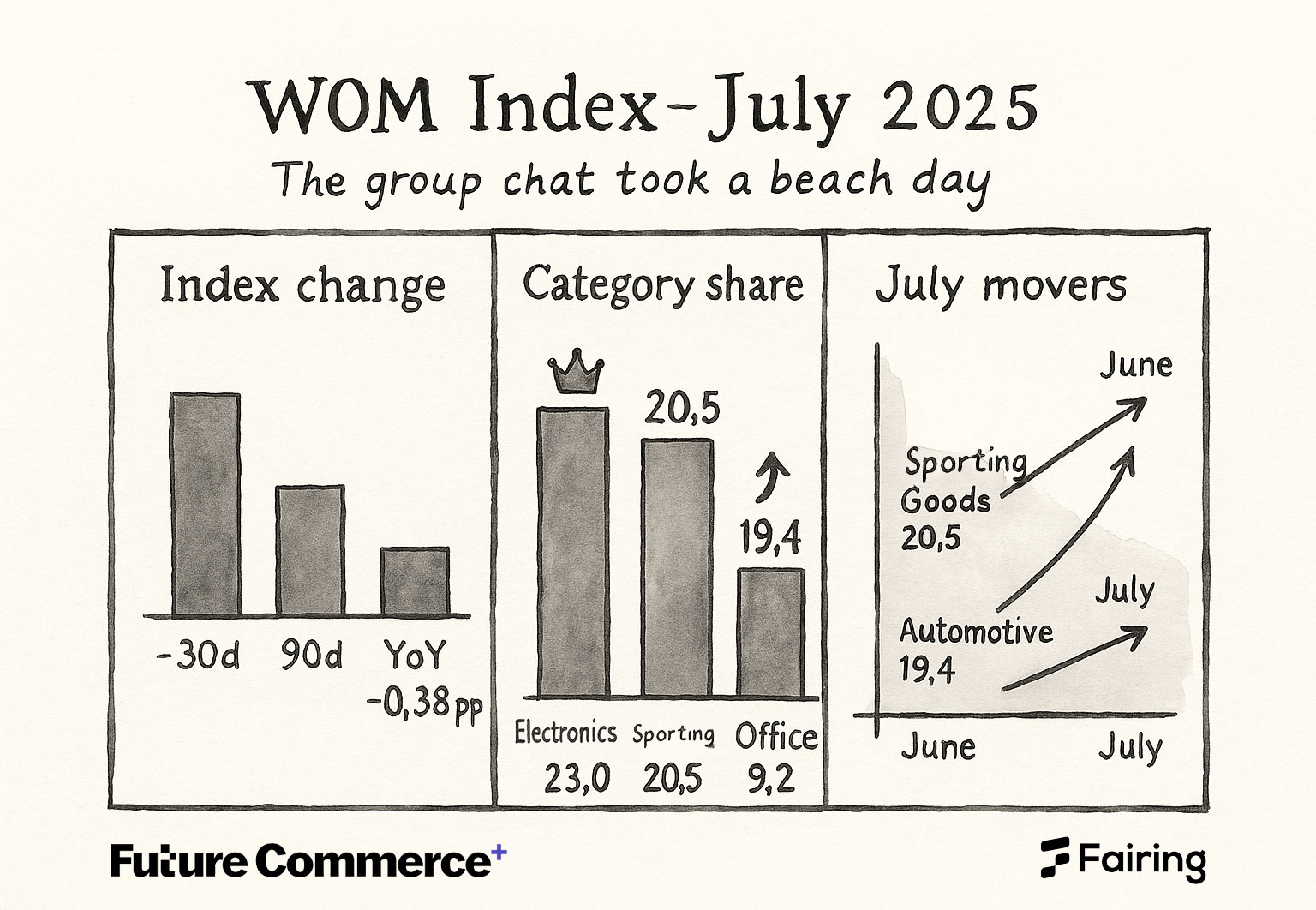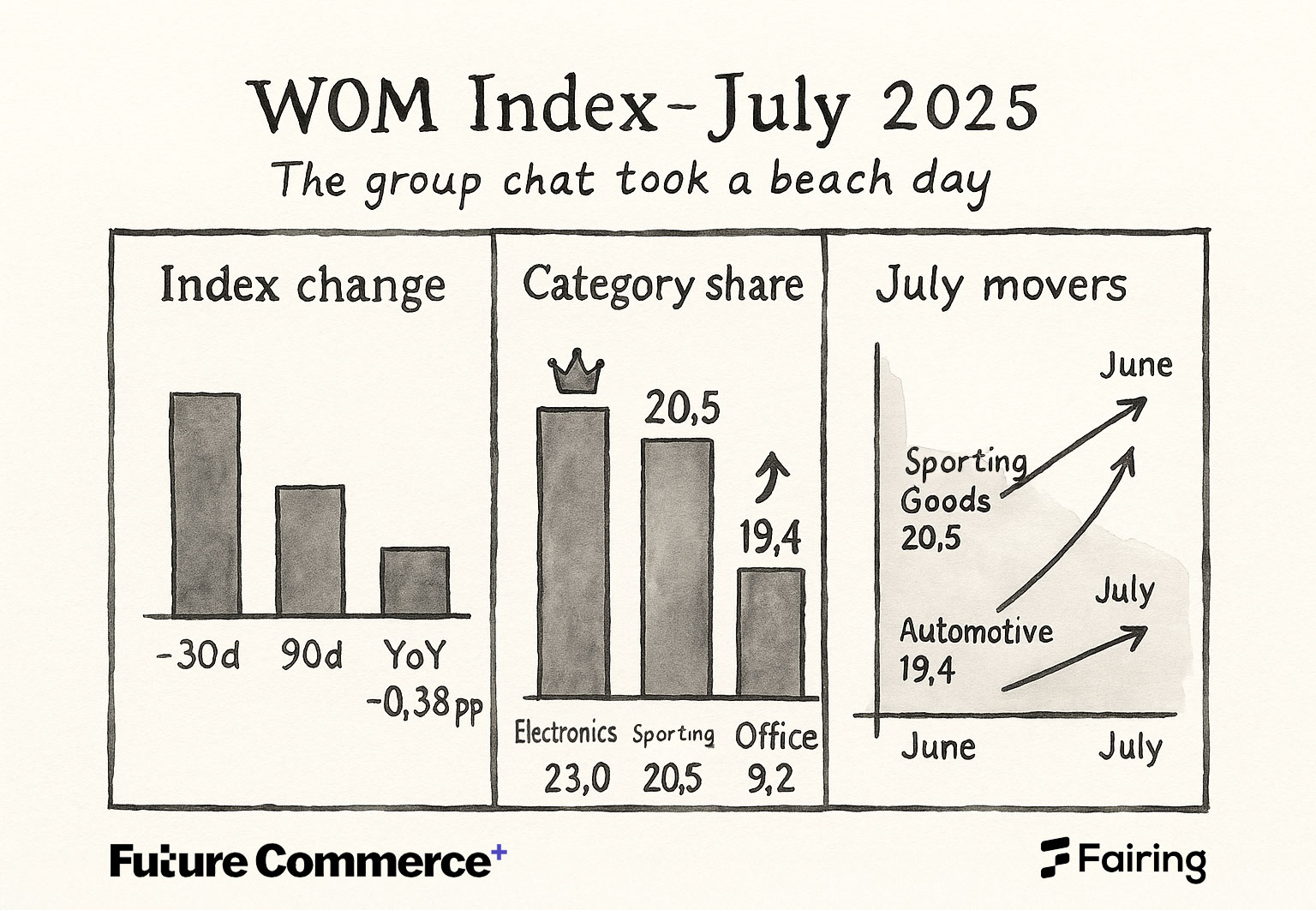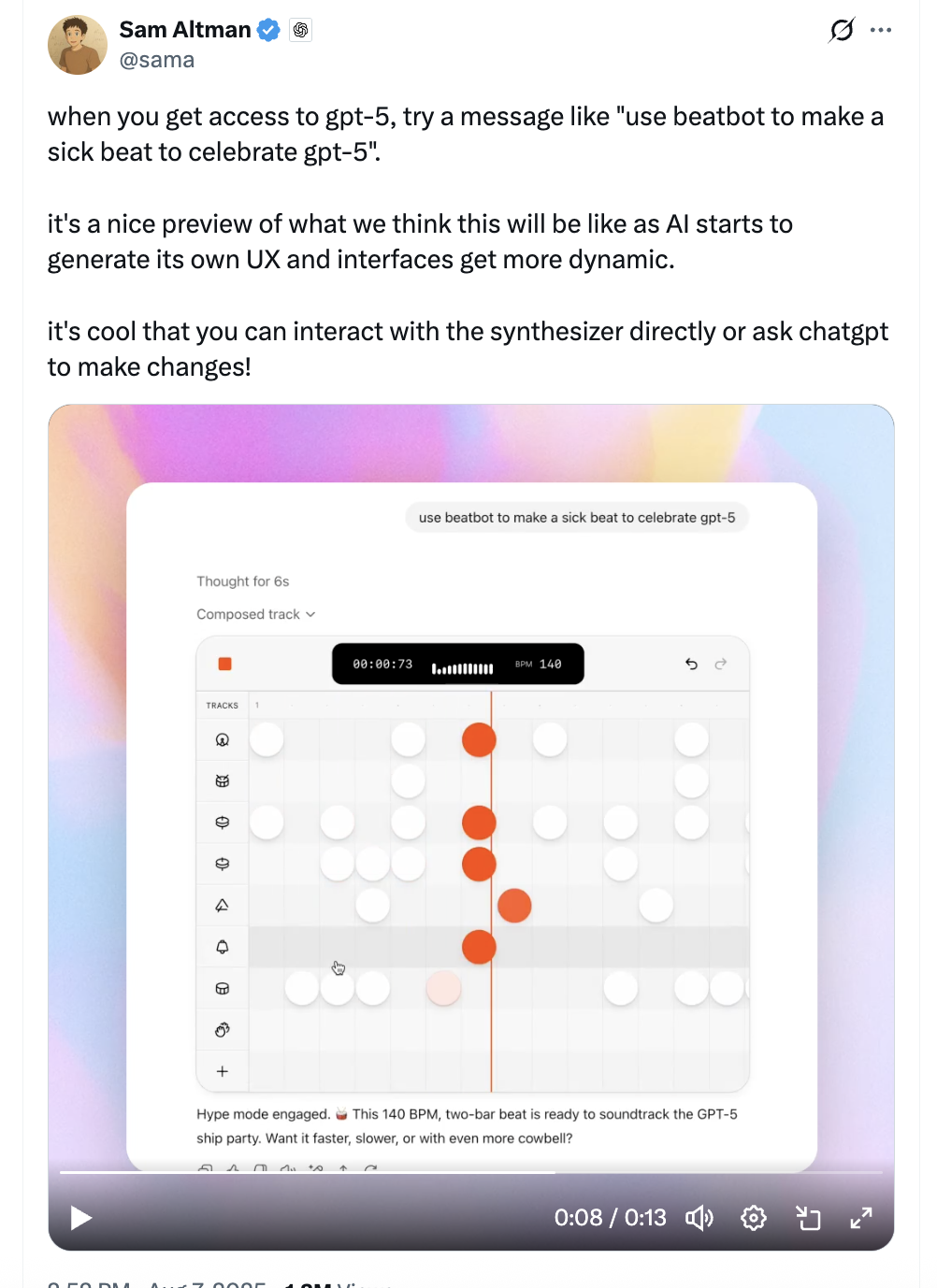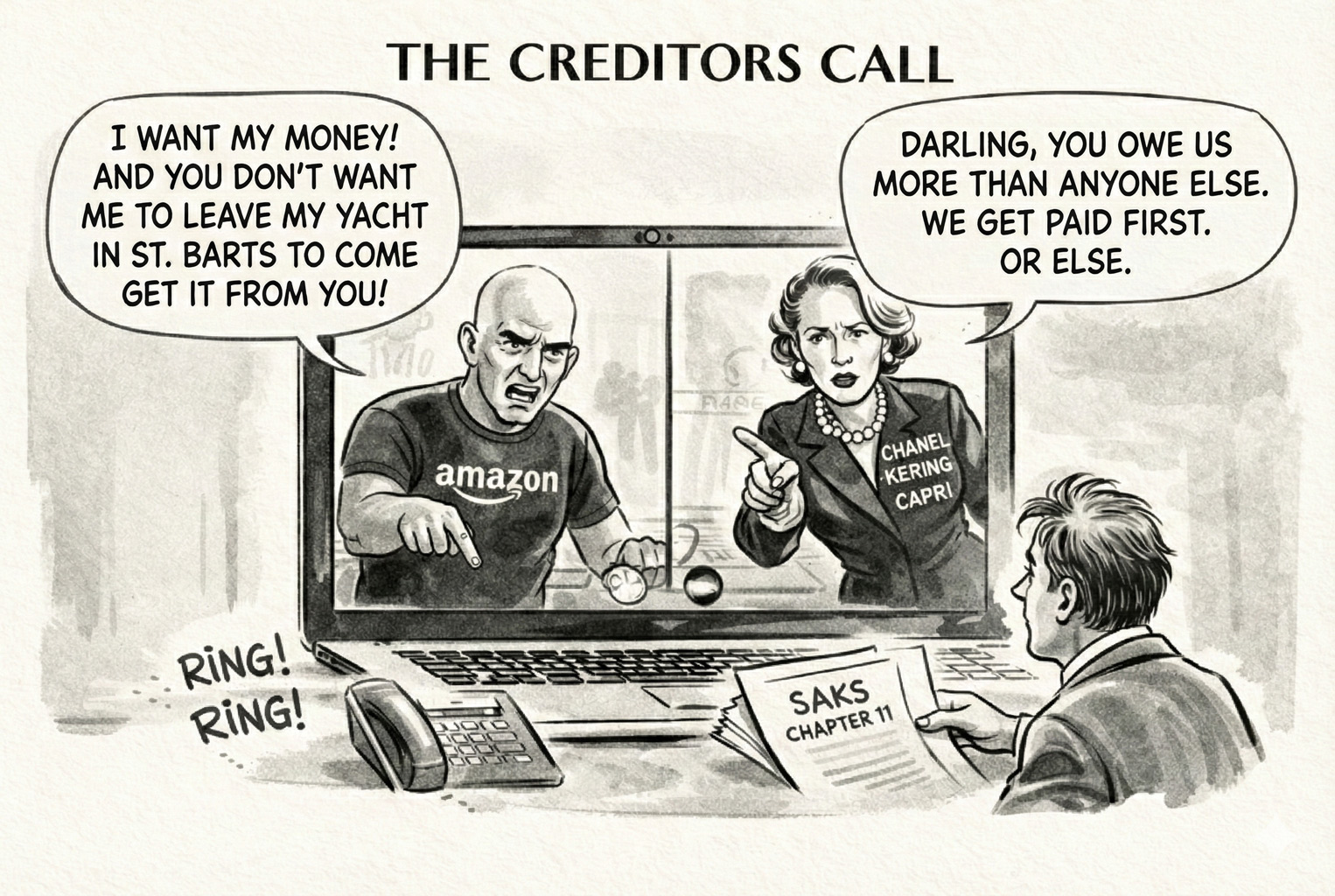
Holy Mayotrimony in Late Condimentalism


Welcome to Friday, futurists!
Our monthly Word of Mouth Index was updated for the month of July. If you’re unfamiliar, the monthly index is our partnership with Fairing which breaks down data from the top 5,000+ Shopify stores on the movement of their word-of-mouth sentiment in post-purchase data.
This month, the industry sectors’ group chat took a beach day.
Word of mouth cooled a hair in July. Not a huge plot twist, just a few summer Fridays. Electronics kept the crown, Sporting Goods and Auto warmed up. Office tripped before back to school.
Future Commerce Plus members get the goods: the actual numbers, 30 and 90 day swings, YoY context, charts by industry, and what to do about it. Built with Fairing using real data from the world’s most culturally significant brands.
Read the July WOM Index on FC Plus: https://www.futurecommerce.com/fc-word-of-mouth-index
— Phillip
P.S. Want a taste first? Email [email protected] and I’ll share one insight on the house.


Till Mayo Do Us Part. Hellmann's sponsored a Vegas wedding complete with strict dress codes, moral rights waivers, and an open bar of aioli. The condiment conglomerate gave guests two weeks' notice to witness what happens when late capitalism meets holy matrimony, proving that dystopia isn't arriving with a bang but with a dollop of mayonnaise and a contractual obligation to post about it.
Our Take: We predicted brands would become religions, but we didn't think they'd literally start officiating the sacraments. This isn't just sponsored content anymore; it's sponsored consciousness. The fact that guests had to waive their "moral rights" (according to the WSJ piece) to attend a mayo-themed wedding is perhaps the most honest thing a brand has ever asked of its audience.
At least when we said brands would become multiplayer, we didn't mean the wedding party would be picked by Unilever's marketing department.
▶️Listen to the 2022 prediction of brands as proto-religion on Spotify or Apple Podcasts.





AI Gets a Soundcloud. Sam Altman previews GPT-5's beatmaking capabilities, suggesting the next frontier of AI isn't just generating text but creating its own UX and "dynamic interfaces." The AI overlord casually drops that machines will soon be making "sick beats to celebrate GPT-5," which sounds less like technological progress and more like Skynet's SoundCloud rapper phase before it decides to eliminate humanity.
Oh, and this might be revolutionary for shopping as it both introduces a new intermediary (the agent) and disintermediates (websites) simultaneously.
Our Take: Altman's casual announcement about AI generating its own interfaces isn't just another feature update—it's the arrival of what Walter Benjamin might have called the "aura" returning to mechanical reproduction, except now the machine is doing the reproducing and the aura is algorithmic.
When AI begins crafting bespoke UX on demand, we're witnessing the web transform from a place you visit to a reality that wraps itself around you like a custom-tailored digital cocoon. This is the personalization era brands have been promising since the first cookie was dropped, but it arrives with a twist: the interface itself becomes liquid, morphing to each user's needs in real-time.
As John Berger wrote, "The relation between what we see and what we know is never settled." This dynamic interface revolution unsettles that relation permanently—a post-web web where accessibility standards and design constraints become quaint relics. Every user gets their own internet, generated on the fly, which should both elate and terrify brands. This is the ultimate barbell strategy, the perfect horseshoe where extremes meet: brands suddenly have infinite control (they can generate millions of unique experiences) and utterly no control at all (they can't predict or constrain what those experiences become).
The chat interface isn't just eating the world; it's digesting it and regurgitating a different reality for each user. Welcome to the era where your brand guidelines are just a suggestion the AI considers before doing whatever it wants anyway.











.svg)
